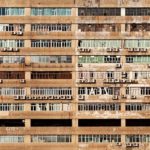ما هي قصيدة (Bad Blood)؟
I’ve the whitish blue eye of my Gallic ancestors, the narrow skull, and the awkwardness in combat. I find my clothing as barbarous as theirs. But I don’t butter my hair
.The Gauls were the most inept flayers of cattle and burners of grass of their age
From them I get: idolatry and love of sacrilege: – oh, all the vices, anger, lust – magnificent, the lust – above all lying and sloth
I’ve a horror of all trades. Masters and workers: all peasants, ignoble. The hand on the pen’s the same as the hand at the plough. – What an age of hands! – I’ll never get my hand in. Anyway service goes too far. The honesty of beggary upsets me. Criminals disgust me like eunuchs: me, I’m whole, and it’s all one to me
But! Who made my tongue so deceitful that it’s guided and safeguarded my laziness till now? Without even using my body to live, and idler than a toad, I’ve lived everywhere. Not a family in Europe I don’t know. – I mean families like mine, who owe it all to the declaration of the Rights of Man. – I’ve known every son of good family
If only I’d forerunners at some time or other in the history of France .But no, nothing
It’s obvious to me I’ve always belonged to an inferior race. I don’t understand rebellion. My race never rose up except to pillage: like wolves round a beast they haven’t killed
I recall the history of France, eldest daughter of the Church. As a peasant I’d have made the journey to the Holy Land: I have all the roads of the Swabian plains in my head, all the views of Byzantium, the ramparts of Suleiman: the cult of the Virgin; tenderness for the crucified, wake in me among a thousand profane enchantments. – I sit, a leper, among broken pots and nettles, at the foot of a wall ravaged by the sun. – Later, a mercenary, I’d have bivouacked under German midnights
Ah! Again: I dance the Sabbath in a red glade, with old women and children
I remember nothing more distant than this country and Christianity. I’d never be finished with viewing myself in this past. But always alone; without a family; what language, even, did I speak? I never see myself in the counsels of Christ; nor in the councils of the Lords – representatives of Christ
What was I in the last century? I only discover myself in the present day. No more vagabonds, no more vague wars. The inferior race has spread everywhere – the people, as one says, reason; the nation and science
Oh! Science! They’ve altered everything. For the body and the soul – the Eucharist – we’ve medicine and philosophy – old wives’ remedies and arrangements of popular songs. And the diversions of princes and the games they prohibited! Geography, cosmography, physics, chemistry
?Science! The new nobility! Progress. The world progresses! Why shouldn’t it turn as well
It’s the vision of numbers. We advance towards the Spirit. It’s quite certain: it’s oracular, what I say. I know, and unaware how to express myself without pagan words, I’d rather be mute
قصيدة (Bad Blood):
كتب آرثر رامبو هذه القصيدة في سبعينيات القرن التاسع عشر بعد انفصاله عن زميله الشاعر بول فيرلين، كان الاثنان معاً حتى أطلق الأخير في حالة من الغضب والذهول النار على رامبو في ذراعه، كتب هذه القطعة بينما كان يعيش في الدور العلوي للحظيرة في مزرعة والديه، نُشرت القصيدة بنفسها عام 1873 لكن النسخ لم توزع إلا بعد عشر سنوات من وفاته.
هذه القطعة هي مثال ممتاز لأسلوب رامبو الخيالي وأحيانًا السريالي، يُذكر كواحد من الأعضاء البارزين في الحركة المنحلة وكذلك الرمزية الفرنسية، القصيدة هي الجزء الثاني من تسعة أقسام تشكل قصيدة رامبو الطويلة والمعقدة والمجازية العميقة.
طوال هذه القصيدة يرتد المتحدث من تجربة إلى أخرى، موضوع القصيدة طوال الوقت هو عدم الرضا، يعبر عن غضبه بنسبه ورغبته في الابتعاد عن أجداده، لا يريد المتحدث أن يكون جزءًا من العرق الفرنسي ويصرح باستمرار أنه سوف يهرب، لكن هذا لا يجعله سعيدًا، حتى عندما يكون قادرًا على القيام بذلك عقليًا، لا يزال غير مرئي للعالم وغريب.
في هذا المقطع الطويل من القصيدة يؤكد الشاعر على الموضوعات التي قدمها لأول مرة في القسم السابق، وهي الحزن والظلام والعزلة والدين، المتحدث أكثر عزلة وتشويشًا ممّا كان عليه من قبل، إنه يقاوم عصر العقل ويبحث باستمرار عن إجابة لتعاسته، بسبب الطبيعة المتناثرة للقصيدة من الصعب معرفة إلى أين يتجه المتحدث بعد ذلك، ولكن من المحتمل جدًا أنه سيظل يشعر بأنه منفصل عن بقية البشر كما كان، إنه يتنقل ذهابًا وإيابًا بين شطب المجتمع الذي ينتمي إليه ويقرر أنه سيسمح لنفسه بأن يكون منفصلاً عنه.
في القسم الأول من القصيدة تتناول الأسطر مظهر المتحدث وتاريخه، إنه جاليك هذا واضح بسبب ملامح وجهه والطريقة التي يحارب بها، إنه غير عادي بطريقة ما فهو بربري أو دخيل، يأخذ العديد من سمات شخصيته من هذه المجموعة أيضًا، يعلن المتحدث عن الأشياء المختلفة التي لا يحبها، لا يريد أن يعمل في تجارة مثل الفلاحين والسادة، لا يحب المجرمين والمتسولين.
يبدو أنّ هذا المتحدث لا يعمل من أجل لقمة العيش ولكنه يحصل على المال بطريقة ما، تميزه هذه الميزة في حياته عن معظم الناس وقد تكون في النهاية أحد أسباب عدم رضاه عن الحياة، يسافر في جميع أنحاء أوروبا، ويقيم مع جميع العائلات الطيبة ويتعرف على بعضه البعض، إنه صديق للبرجوازية، الطبقة التي بدأت بالفعل خلال الثورة الفرنسية بإعلان حقوق الإنسان.
يقفز السرد مرة أخرى ويأخذ القارئ إلى معركة من نوع ما، إنه يحاول العمل بجد ويدفع نفسه إلى أقصى الحدود كما لو كان هناك عمل بطولي قادم، إنه يبحث عن شيء مشرف أو يسلم نفسه، سيقبل مصيره كما يفعل الفرنسيون، ولكن بعد كل ما قاله حتى الآن يبدو من غير المرجح أن يكون متحدث رامبو سعيدًا كما هو بغض النظر عن حالته.









